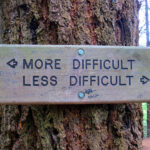Anger, hatred and jealousy never solve problems, only affection, concern and respect can do that. – Dalai Lama

Even if it was their fault, would being angry at the cashier make anything better, or would it make things worse?
What does that mean?
This quote answers the problem it poses by stating the opposites for each of the deficiencies. Anger can be countered with affection. Hatred can be countered with concern. Jealousy can be countered with respect.
Each person will have a different ‘perfect’ counter to each, but what is outlined in the quote is a good place to start. Taken together, not only can affection, concern, and respect counter anger, hatred, and jealousy, the can help form the relationship where a solution can be found.
While the three ‘good’ emotions listed won’t help solve the mystery of Quantum Physics, it is certain that the other three emotions will not either. What the ‘good’ three will do, however, is allow people to work together to solve the problems of the world. The other three emotions cannot, and will not ever, do that.
Why is working together important?
There are plenty of quotes about working together, but this one doesn’t exactly say that, does it? But I believe that it is inferred. I say that because affection, concern, and respect are not directly useful problem solving skills, are they?
They are interpersonal skills, the kinds of skills that make cooperation and collaboration more easily accomplished. In this manner, people can more easily work together on actually solving problems, instead of picking on each-other or otherwise being distracted.
When we can better focus our energies on solving the problems at hand, we can help everyone, and not just ourselves. We may not have the exact solution, but we may have the key idea to help others find it. And that is always a good thing.
When we are working together, we cover our weaknesses and buttress each-other’s strengths. That makes the sum of our abilities so much more than the strength of any one person. In short, problems don’t stand a chance, right? At least that’s the way it’s been in my experience.
Where can I apply this in my life?
That would depend on where in your life you work or otherwise interact with others. Anger, hatred, and jealousy will not serve you well in any such situations, will it? So those are the places where I would try to make use of the quote.
So, where do you interact with others? For most people, most of their lives are spent interacting with others, with only brief moments of solitude. Others spend a great deal of time alone, but still have to work with others from time to time.
Consider this scenario: you’re done shopping, and ready to check out. The person in front of you is having a bad day and taking it out on the cashier. Finally, they leave. You approach the cashier. Do you take your anger and frustration out on them, as the prior patron did, or do you try to work with them?
If you chose anger, can you explain to me how that solved the problem? In my experience, anger at that point certainly doesn’t solve the problem, unless your idea of solving involved feeling better by making someone else feel worse, and that’s just not right.
What about in your family, or your close friends? How about in your social life, in the groups of people with whom you spend time? Then there is work, right? Then consider all the other times when you have to work with another person at a store or other place of business. Then there are the sporting events, where you have to work with complete strangers.
Will anger, hatred, or jealousy help in any of those situations? I can’t imagine a situation where they would, unless you have a very different idea of problem solving than I. To me, that is the whole point of the quote. The first three emotions are the things which make things worse, not better.
What can you do to more reliably use the second three emotions, and less likely to use the first three? Can you think of the last time you used one of the first three, and how you might avoid it? Even better, could you have found a way to use one of the second three instead? How much better might that situation have turned out if you had?
While we may be able to solve a problem on our own from time to time, most of the time we rely on the help of others. We can react in any number of ways to that collaboration. I hope you give this some thought, so that next time you are in that situation, you are prepared to respond in a helpful manner.
From: Twitter, @DalaiLama
confirmed at : it’s his own feed…
Photo by Chiang 大江帝國






